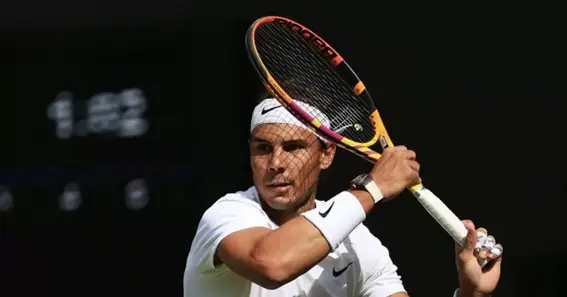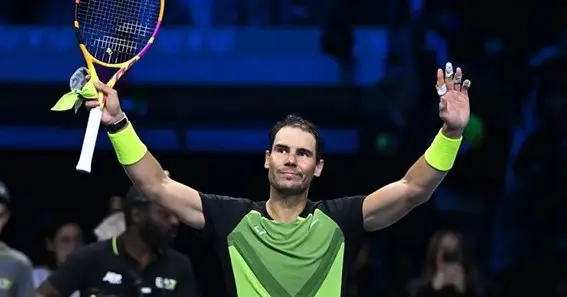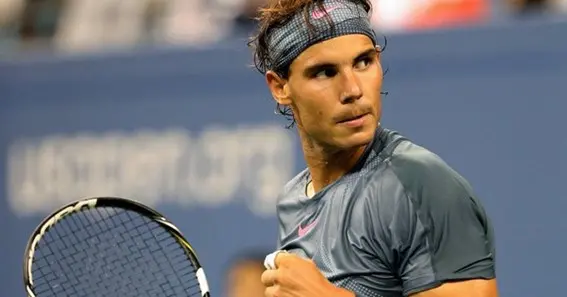Rafael Nadal, one of the greatest tennis players in history, is celebrated not just for his outstanding skills on the court but also for the nicknames that fans and the media have affectionately given him. The Nadal nickname has become a part of his identity, representing his achievements, personality, and the admiration of his fans. In this blog, we’ll dive into the origin of the Nadal nickname, explore the different titles he’s earned, and understand what these nicknames say about him as a person and a player.
The Origin Of The Nadal Nickname “Rafa”
The most common Nadal nickname is “Rafa.” This simple and friendly version of his first name is used by his friends, family, and fans. In Spain, where Rafael Nadal was born and raised, it’s common to shorten names as a way of showing affection. “Rafa” is more than just a nickname—it’s a reflection of the warmth and closeness that people feel towards him. The Nadal nickname “Rafa” is not just a name; it symbolizes the connection between Nadal and those who admire him.
The choice of “Rafa” as a nickname also reflects his approachable and humble nature. Despite his superstar status, Nadal remains grounded and relatable, qualities that are encapsulated in this Nadal nickname. When fans chant “Rafa” during his matches, it’s more than just support—it’s a way of expressing their deep connection to him.
The King Of Clay: Another Nadal Nickname

While “Rafa” is the most personal Nadal nickname, another title that has become synonymous with him is “The King of Clay.” This Nadal nickname was earned through his extraordinary success on clay courts, a unique surface in the world of tennis. Clay courts are slower than other surfaces, demanding exceptional endurance, strategy, and skill. Nadal’s ability to dominate on clay is unparalleled, with a record 14 French Open titles to his name.
“The King of Clay” is not just a Nadal nickname; it’s a testament to his mastery of the game on this challenging surface. His unique playing style, characterized by heavy topspin, incredible footwork, and mental toughness, has made him nearly unbeatable on clay. This Nadal nickname highlights his dominance and the respect he commands in the world of tennis.
The Importance Of The Nadal Nickname In His Legacy
Nicknames often reveal something important about a person, and the Nadal nickname is no exception. “Rafa” speaks to the affection and familiarity that people feel towards him, reflecting his kind and approachable nature. It’s a name that feels close, personal, and friendly, much like the man himself.
On the other hand, “The King of Clay” is a Nadal nickname that highlights his professional achievements. It’s a name that commands respect and acknowledges his incredible talent and hard work. This Nadal nickname is not just about his success; it’s about the legacy he has built as one of the greatest tennis players of all time.
These Nadal nicknames, “Rafa” and “The King of Clay,” together paint a complete picture of who Rafael Nadal is. They show us a man who is both a fierce competitor and a humble individual, someone who has earned the love of fans and the respect of his peers.
Other Notable Nadal Nicknames

While “Rafa” and “The King of Clay” are the most well-known Nadal nicknames, there are others that have been used to describe him over the years. Some refer to him as “El Toro” (The Bull) because of his aggressive and relentless playing style. This Nadal nickname reflects his fighting spirit and the determination he shows in every match.
Another less common Nadal nickname is “The Beast,” which highlights his physical strength and endurance. Nadal is known for his intense training regimen and his ability to outlast opponents, qualities that are captured in this nickname.
These additional Nadal nicknames further emphasize different aspects of his character and playing style, showing the many dimensions of his personality and career.
Conclusion
The Nadal nickname is more than just a label—it’s a reflection of Rafael Nadal’s journey, his personality, and his legacy. Whether it’s the affectionate “Rafa” that connects him to his fans or the respectful “King of Clay” that honors his achievements, these nicknames are an integral part of who he is. They tell the story of a man who has not only excelled in his sport but has also won the hearts of millions around the world.
Understanding the meaning behind each Nadal nickname gives us a deeper appreciation of the tennis legend. Rafael Nadal is more than just a great player; he’s a beloved figure whose nicknames capture the essence of his remarkable career and character.
FAQ
What Is Rafael Nadal’s Most Common Nickname?
The most common nickname for Rafael Nadal is “Rafa.” It’s a friendly and affectionate version of his first name, widely used by fans, friends, and family.
Why Is Rafael Nadal Called “The King Of Clay”?
Rafael Nadal earned the nickname “The King of Clay” due to his unmatched success on clay courts, particularly his record 14 French Open titles. His dominance on this surface is unparalleled in tennis history.
Are There Any Other Nicknames For Rafael Nadal?
Yes, besides “Rafa” and “The King of Clay,” Nadal has also been called “El Toro” (The Bull) and “The Beast.” These nicknames highlight his fierce playing style and incredible physical strength.
How Did Rafael Nadal’s Nickname “Rafa” Originate?
The nickname “Rafa” is simply a shortened version of his first name, Rafael. In Spain, it’s common to use shortened names as a sign of affection, making “Rafa” a warm and familiar nickname.
What Does Rafael Nadal’s Nickname Say About His Personality?
The nickname “Rafa” reflects Nadal’s approachable and humble nature, while “The King of Clay” underscores his incredible talent and hard work. Together, these nicknames show his dual identity as both a beloved figure and a tennis legend.
How Did The Nickname “Spain’s Raging Bull” Originate?
This moniker reflects Nadal’s aggressive playing style and tenacity, drawing a parallel to the bull, a symbol of strength and determination in Spanish culture.
Read more similar posts Charlie Clips Dad










